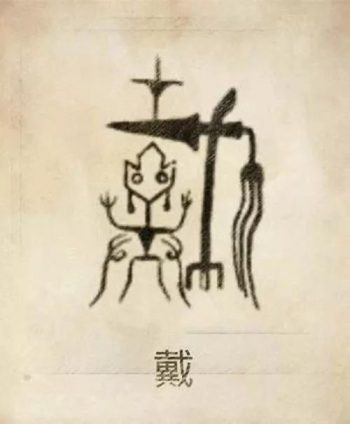The Dai(dài) surname, one of the most prominent family names in China, traces its origins back over 3,000 years to the Shang and Zhou dynasties. This article explores the fascinating history, cultural significance, and global impact of the Dai surname, offering a glimpse into the rich tapestry of Chinese heritage.

Ⅰ、The Origins of the Dai Surname
1. Take the country as the surname
During the Shang Dynasty, the Dai State (located in modern-day Shangqiu, Henan Province) was established. When the state was conquered by the Song State during the Spring and Autumn Period, its people adopted "Dai" as their surname to preserve their ancestral memory.
2. From Royal Descendants
Another branch of the Dai surname originated from Duke Dai of Song, a ruler of the Song State during the Western Zhou Dynasty. His descendants took "Dai," his posthumous title, as their surname.
3. From Ethnic Assimilation
Over centuries, various ethnic groups, such as the Di people during the Northern and Southern Dynasties and the Mongol Barson clan during the Qing Dynasty, adopted the Dai surname as part of their integration into Han Chinese culture. For example, the Qing Dynasty Mongol general Fushou was granted the Dai surname for his military achievements, and his descendants continue to bear the name today.
Ⅱ、Historical Figures
1. The Masters of Ritual Studies
During the Western Han Dynasty, Dai De and his nephew Dai Sheng compiled the Da Dai Li Ji and Xiao Dai Li Ji (the Book of Rites), which became foundational texts for Confucian ritual studies.
2. The Renaissance Man of the Eastern Jin Dynasty
Dai Kui, a scholar and artist, was renowned for his critiques of Buddhist karma theory and his mastery of sculpture and painting. His son, Dai Yong, was a pioneer in landscape painting.
3.The Enlightenment Thinker
Dai Zhen, a prominent scholar of the Qing Dynasty, challenged traditional Neo-Confucian doctrines with his philosophy emphasizing the importance of human desires, contributing to intellectual liberation.
Literary and Political Figures
Dai Fugu, a Southern Song poet, was celebrated for his bold and expressive style.
In the Tang Dynasty, Dai Zhou, a chancellor known for his integrity, earned the trust of Emperor Taizong.
Ⅲ、Cultural Significance:
1.Ancestral Halls and Regional Influence
The "Qiaoguo Hall" (in Bozhou, Anhui) and "Zhuli Hall" (honoring Dai De and Dai Sheng) symbolize the family's scholarly traditions.
The "Dubutang" commemorates Dai Liang, a Han Dynasty scholar known for his independent spirit.
2.Genealogical Records
The earliest known Dai family genealogy, The Great Lineage of the Dai Family, dates back to the Eastern Jin Dynasty. The Dai family of Xiuning, Anhui, preserved a set of "Ten Family Precepts," emphasizing the balance between commerce and Confucian values.
3.Cultural Landmarks
The Sanling Terrace in Shangqiu, Henan, where Duke Dai of Song is buried, serves as a spiritual site for the Dai family. Archaeological discoveries in Zhecheng County further confirm the early presence of the Dai surname in the region.
Ⅳ、Social Impact:
1.Economic Contributions
During the Ming and Qing dynasties, the Dai family was prominent among the Huizhou merchants, who dominated trade in southern China. Dai Yinggeng, a salt merchant from Yangzhou, funded the construction of the iconic Slender West Lake, contributing to the region's cultural and economic prosperity.
2.Modern Academic Pioneers
Dai Fanglan (1893–1973), a pioneer in mycology, and Dai Wensai (1911–1979), who established China's astrophysics discipline, exemplify the family's transition from traditional scholars to modern intellectuals.
3.Global Cultural Connections
The Dai Family Temple in Lukang, Taiwan, preserves a plaque from the Qianlong era, bearing the inscription "Descendants of Qiaoguo." The Dai Clan Association in Southeast Asia regularly hosts global reunions, strengthening cultural ties among overseas Chinese communities.
Conclusion:
The history of the Dai surname is a testament to the enduring legacy of Chinese culture. From the compilation of Confucian classics to groundbreaking philosophical ideas, from artistic achievements to contributions in governance, the Dai family has left an indelible mark on history. Today, the global diaspora of the Dai surname serves as a bridge connecting Chinese heritage with the wider world.